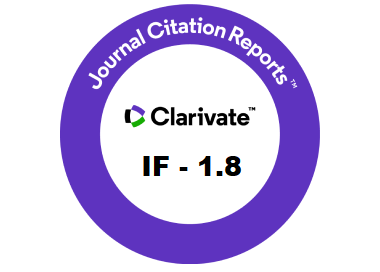SUDBIOTECH: A Training Initiative in Plant Biotechnology Dedicated to Scientific Communities in Developing and Emerging Countries
DOI:
https://doi.org/10.15835/nbha3824892Abstract
The SudBiotech project is targeting PhD and Masters Programmes in Universities and Excellence Research Centres located in developing countries. It proposes an integrative and multidisciplinary approach under the form of a one-week discovery and training itinerary. SudBiotech is aimed at addressing various different fields of Plant Biotechnology, under the specific socioeconomic context of scientific communities from these countries. Our main goal is to train students, research staff, deciders, professionals and journalists to the basic knowledge underlying applications of plant biotechnologies, in order to both update the amount of knowledge which is requested at Master’s level and to acquire a solid body of information which is indispensable for any decision making, in a field of research which is often the target of political, social and media-related pressure. The team of Professors involved in the project shares a strong experience in teaching and training in overseas French Speaking Universities (AUPELF-UREF projects in Marocco, Tunisia, Togo, Côte d’Ivoire, TEMPUS Programme in Lebanon, AUF-Actions de Recherche en Réseau in Benin). The team is composed of senior scientists acting in various complementary fields, namely: Biochemistry/Physiology (A. Nato), Plant Breeding/Molecular Biology (Y. Henry), Tropical Agriculture/Epigenetics (A. Rival). Thanks to these complementarities, SudBiotech is able to propose a training itinerary which is diversified and integrated, covering areas from the plant cell and its original potentialities to the most recent industrial applications of plant biotechnologies (GMOs), their public acceptance in developing and emerging nations and their applicability to tropical plant commodities. The training offer is amplified and enriched through the active role of local research and training staff, who are encouraged to actively participate in the SudBiotech project under various forms including lectures, field visits, practical sessions, etc. SudBiotech relies on original research results, which support and illustrate the various different basic notions evoked during lectures. The case of the bio-production of high added value pharmaceutical products by genetically engineered cells or plants under confined condition is a good example of this integration. Our priority is to establish a long-term, continuous system for training and capacity building, based on appropriate tools for scientific communities in developing and emerging countries: training of PhD students, job opportunities in their native country/region, overseas training, access to scientific information and literature and access to funders and international networks. It is important to note that any training material which is produced under the framework of SudBiotech is graciously given without any Intellectual Property Rights to partner institutions, in order to constitute a local basis for training in Plant Biotechnologies in beneficiary countries.Downloads
Published
2010-09-24
How to Cite
RIVAL, A., ADEOTI, K., SANNI, A., NATO, A., & HENRY, Y. (2010). SUDBIOTECH: A Training Initiative in Plant Biotechnology Dedicated to Scientific Communities in Developing and Emerging Countries. Notulae Botanicae Horti Agrobotanici Cluj-Napoca, 38(2), 16–21. https://doi.org/10.15835/nbha3824892
Issue
Section
Review Articles
CITATION
DOI: 10.15835/nbha3824892
License
Copyright (c) 2010 Alain RIVAL, Kifouli ADEOTI, Ambaliou SANNI, Aimé NATO, Yves HENRY

This work is licensed under a Creative Commons Attribution 4.0 International License.
License:
© Articles by the authors; licensee UASVM and SHST, Cluj-Napoca, Romania. Papers published in the journal Notulae Botanicae Horti Agrobotanici Cluj-Napoca are open access distributed under the terms and conditions of the Creative Commons Attribution License (http://creativecommons.org/licenses).

Open Access Journal:
The journal allows the author(s) to retain publishing rights without restriction. Users are allowed to read, download, copy, distribute, print, search, or link to the full texts of the articles, or use them for any other lawful purpose, without asking prior permission from the publisher or the author.











.png)







